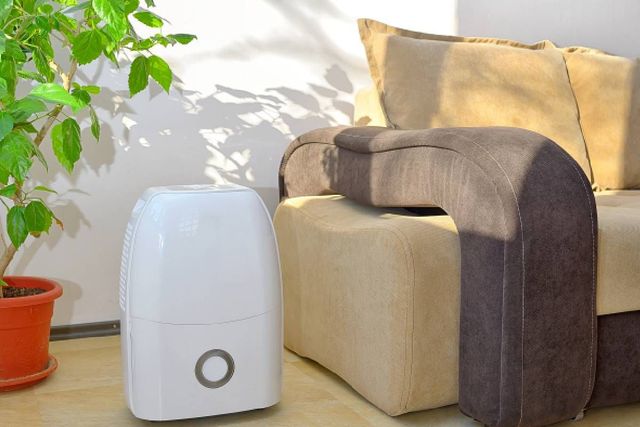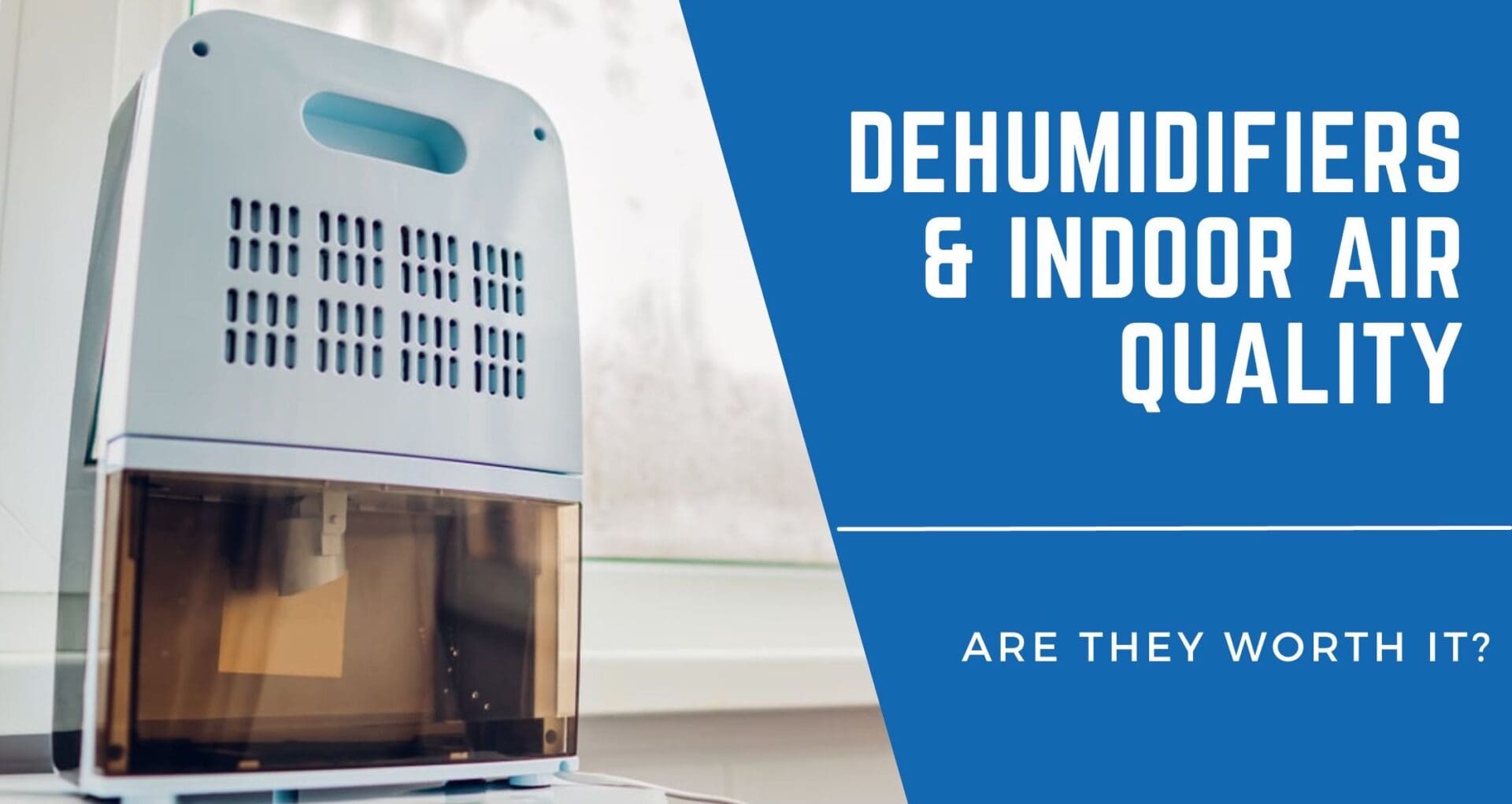Dehumidifiers are worth it for reducing humidity and preventing mold growth. They improve air quality and protect your home.
Excess humidity can lead to various problems, including mold growth, musty odors, and potential health issues. Dehumidifiers effectively reduce moisture levels, creating a healthier living environment. They also help preserve wooden furniture, electronics, and other household items susceptible to moisture damage.
Energy-efficient models can save on electricity bills while providing these benefits. Investing in a dehumidifier can enhance comfort and protect your home’s structural integrity. Whether you live in a humid climate or have specific rooms prone to dampness, a dehumidifier can be a valuable addition to your home.
Introduction To Dehumidifiers
Dehumidifiers help manage moisture levels in your home. High humidity can lead to mold growth and dust mites. These devices reduce humidity, making your home healthier and more comfortable.
Purpose And Function
Dehumidifiers work by pulling in humid air. They then cool it to remove moisture. The dry air is then released back into the room. This helps in reducing dampness and musty smells.
Dehumidifiers also protect your furniture and electronics. They prevent moisture-related damage. These devices can also help with allergies and respiratory issues. Keeping humidity in check is vital for your home’s health.
Types Of Dehumidifiers
There are different types of dehumidifiers available. The choice depends on your needs and room size.
| Type | Ideal For | Features |
|---|---|---|
| Refrigerant Dehumidifiers | Basements, large spaces | Effective in warm climates, energy-efficient |
| Desiccant Dehumidifiers | Colder areas, smaller rooms | Works well in low temperatures, quieter |
| Whole-House Dehumidifiers | Entire house | Integrated with HVAC, high capacity |
| Portable Dehumidifiers | Bedrooms, bathrooms | Easy to move, affordable |
- Refrigerant Dehumidifiers: Best for warm, humid climates. They are energy-efficient and work well in large spaces.
- Desiccant Dehumidifiers: Suitable for colder areas. They operate quietly and are effective in smaller rooms.
- Whole-House Dehumidifiers: Ideal for entire homes. They integrate with your HVAC system and handle large volumes of air.
- Portable Dehumidifiers: Perfect for smaller spaces like bedrooms. They are easy to move and budget-friendly.
Choosing the right dehumidifier ensures optimal performance. Consider the size of the space and your specific needs. A well-chosen dehumidifier can improve your living environment significantly.

Credit: www.advantageairhvac.com
How Dehumidifiers Work
Dehumidifiers are essential gadgets that help control humidity levels. They remove excess moisture from the air. But how do they actually work? Let’s dive into the basic mechanisms and common features that make dehumidifiers worth considering.
Basic Mechanism
A dehumidifier works by drawing in moist air. It uses a fan to pull air through a filter. The air then passes over cold coils. This cools the air, causing moisture to condense. The water droplets collect in a tank or drain out through a hose.
After this, the now dry air passes over warm coils. This reheats the air before it is expelled back into the room. This process repeats continuously, maintaining the room’s humidity at a comfortable level.
| Step | Description |
|---|---|
| 1 | Fan draws in moist air |
| 2 | Air passes over cold coils, condensing moisture |
| 3 | Water collects in a tank or drains out |
| 4 | Dry air reheats and is expelled |
Common Features
Dehumidifiers come with several features that enhance their functionality. Below are some common ones:
- Adjustable Humidity Settings: Allows you to set the desired humidity level.
- Auto Shut-off: Turns off the unit when the water tank is full.
- Continuous Drain Option: Lets you attach a hose for continuous drainage.
- Hygrometer: Monitors the room’s humidity level.
- Air Filter: Removes dust and allergens from the air.
These features make dehumidifiers user-friendly and efficient. They ensure you get the most out of your investment.
Health Benefits
Dehumidifiers offer significant health benefits by improving indoor air quality. They help reduce moisture levels, making your home healthier. Here are the key health benefits:
Reducing Allergens
High humidity encourages allergens like dust mites and mold spores. Dehumidifiers lower humidity, reducing allergens in the air. This helps people with allergies breathe easier.
- Less dust mites
- Fewer mold spores
- Improved breathing
Allergy sufferers often notice a big improvement. Lower humidity means fewer triggers for asthma and allergies.
Preventing Mold Growth
Mold grows in damp, humid conditions. It can cause various health issues. Dehumidifiers help prevent mold growth by keeping moisture levels low.
| Mold Issue | Health Impact |
|---|---|
| Respiratory Problems | Coughing, Sneezing |
| Skin Irritation | Rashes |
Using a dehumidifier reduces the risk of these issues. Lower humidity levels create an environment where mold can’t thrive.

Credit: performanceac.com
Home Comfort
Creating a comfortable home environment is essential for well-being. A key factor in achieving this is managing humidity levels. Dehumidifiers play a crucial role in maintaining the comfort of your home. Let’s explore how they can improve your living space.
Improving Air Quality
Dehumidifiers help to improve air quality by reducing excess moisture. High humidity levels can lead to mold growth. Mold can cause allergies and respiratory issues. Dehumidifiers remove moisture, making the air cleaner and healthier.
Cleaner air means fewer allergens. This leads to fewer health problems. By removing dust and mold spores, dehumidifiers create a healthier environment.
Maintaining Ideal Humidity
Maintaining the ideal humidity is crucial for home comfort. The perfect humidity level is between 30% and 50%. Dehumidifiers help to achieve this balance. Proper humidity levels prevent the growth of mold and mildew.
Here are some benefits of maintaining ideal humidity:
- Prevents mold and mildew growth
- Reduces dust mites
- Preserves wooden furniture
- Improves sleep quality
Dehumidifiers also protect your home. They help preserve furniture, walls, and ceilings. Excess moisture can cause damage to these items. By controlling humidity, you can extend the life of your belongings.
Energy Efficiency
Dehumidifiers help remove excess moisture from the air. But are they energy efficient? Understanding their power consumption and cost savings can help you decide.
Power Consumption
Dehumidifiers use electricity to function. Their power consumption varies based on the model. Smaller units generally use less power. Larger units may consume more but are efficient in large spaces.
| Model Size | Power Consumption (Watts) |
|---|---|
| Small | 300-500 |
| Medium | 500-700 |
| Large | 700-1000 |
Cost Savings
Using a dehumidifier can lead to significant cost savings. Running a dehumidifier can lower your energy bills. This happens because a less humid environment requires less air conditioning.
- Lower humidity means your AC works less.
- Less strain on AC reduces its power consumption.
- Less power used means lower electricity bills.
Over time, these savings can add up. Investing in a dehumidifier can be cost-effective.

Credit: blog.totalhomesupply.com
Choosing The Right Dehumidifier
Selecting the perfect dehumidifier can make a big difference in your home. It keeps the air comfortable and healthy. But how do you pick the right one? Let’s break it down.
Size And Capacity
The size and capacity of a dehumidifier matter a lot. You need to match it with the room size. Small rooms need a smaller unit. Large spaces need a bigger dehumidifier.
Here’s a quick guide to help you:
| Room Size | Dehumidifier Capacity |
|---|---|
| Up to 300 sq. ft. | 10-20 pints |
| 300-500 sq. ft. | 20-30 pints |
| 500-1,000 sq. ft. | 30-50 pints |
| 1,000+ sq. ft. | 50+ pints |
Make sure to choose based on the room size and humidity level. This ensures the best performance.
Additional Features
Modern dehumidifiers come with many extra features. These can make your life easier.
- Auto-Shutoff: Turns off the unit when the tank is full.
- Continuous Drain Option: Allows for continuous operation without emptying the tank.
- Built-in Pump: Helps in draining water vertically.
- Digital Controls: Makes it easy to set and monitor humidity levels.
- Filter Indicator: Alerts you when it’s time to clean the filter.
These features can save you time and effort. They also enhance the efficiency of the dehumidifier.
Choosing the right dehumidifier involves looking at size, capacity, and added features. This ensures you get the best value and performance.
Expert Opinions
Understanding whether dehumidifiers are worth the investment can be challenging. Many experts offer valuable insights. Their opinions help us make informed decisions. This section delves into expert viewpoints on dehumidifiers.
Consumer Reviews
Many consumers share their experiences with dehumidifiers. Their feedback highlights both benefits and drawbacks. Here are some common themes:
- Improved Air Quality: Users report better air quality.
- Reduced Allergies: Many see a drop in allergy symptoms.
- Energy Efficiency: New models consume less power.
- Noise Levels: Some users find them quiet, others do not.
Reading consumer reviews helps understand real-world performance. It provides a balanced view of what to expect.
Professional Recommendations
Professionals in the HVAC industry often recommend dehumidifiers. They highlight several key benefits:
| Benefit | Explanation |
|---|---|
| Mold Prevention | Dehumidifiers reduce mold growth significantly. |
| Structural Protection | They help protect home structures from moisture damage. |
| Health Improvements | Lower humidity levels benefit respiratory health. |
| Longevity of Electronics | Reduced moisture extends the life of electronic devices. |
Expert recommendations provide technical insights. They help us understand the scientific benefits of using dehumidifiers.
Frequently Asked Questions
What Are The Benefits Of Using A Dehumidifier?
A dehumidifier reduces humidity, preventing mold growth and dust mites. It improves air quality and comfort. It can also help preserve furniture and electronics.
How Do Dehumidifiers Work?
Dehumidifiers extract moisture from the air using a fan and cooling coils. The moisture collects in a tank or drains away.
Are Dehumidifiers Energy Efficient?
Modern dehumidifiers are energy efficient. Look for Energy Star-rated models to ensure lower energy consumption and operating costs.
Can Dehumidifiers Help With Allergies?
Yes, dehumidifiers reduce allergens like dust mites and mold. Lower humidity levels create a less favorable environment for these allergens.
Conclusion
Dehumidifiers can improve air quality and comfort in your home. They help reduce mold and allergens. Investing in a dehumidifier can save on energy bills and protect your belongings. For a healthier living environment, a dehumidifier is a worthy addition to your household.
Consider your specific needs before purchasing one.

